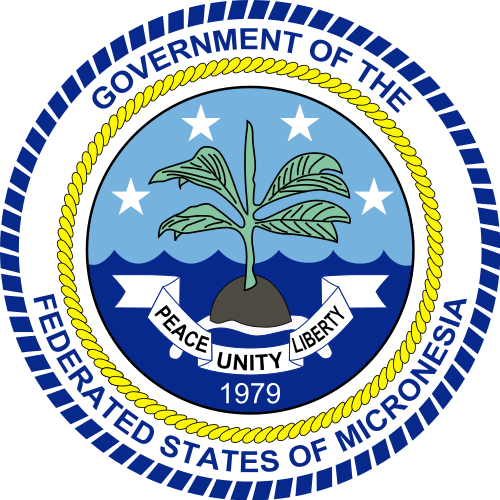The Federated States of Micronesia’s Supreme Court has found two of its nationals guilty of conspiracy to commit money laundering and conflict of interest, in a case involving an unlawful international shipping registry set up in FSM’s name.
A government statement said Martin Jano, an FSM citizen and a lawyer was found guilty on the conspiracy to commit money laundering charge. Also guilty was Lukner Weilbacher, the former Secretary of Transport, Communications, & Infrastructure in the previous administration of President Peter M. Christian. He was found guilty on the conflict-of-interest charge.
Charged with the two FSM nationals was Suniel Sharma, a businessman who set up the Micronesia International Ship Registry(MISR), an open ship registry, that is unlawful for FSM.
The FSM only permits a closed registry, where vessels (i.e. boats and ships etc.) can only be registered by qualified FSM persons, who are either FSM citizens; FSM-citizen corporations; persons, including corporations, with FSM national government foreign investment permits and with their principal place of business in the FSM.
Sharma is a dual citizen of the United States and India and has not been in the FSM for several years. He remains at large and is being pursued by the U.S Federal Bureau of Investigations (FBI) and the FSM Department of Justice.
In the summary of the Memorandum of Decisions by the FSM Supreme Court, it was revealed that defendants Weilbacher and Jano were charged with conspiring with co-defendant Sharma through the collection of fees for the registration of foreign vessels under the FSM flag in an open ship registry that Sharma, or one of his companies, operated in FSM’s name.
“The Micronesia International Ship Registry was an unlawful enterprise. Sharma was able to setup and operate the Micronesia International Ship Registry and registered 103 ineligible vessels and collected registration fees from their owners because Lukner Weilbacher, then Secretary of the Department of Transportation, Communications, & Infrastructure, wrote a letter of intent dated 02 October, 2015, that was written to authorise the registry’s operations and which Sharma used to implement the scheme.”
“The FSM was not entitled to any of the funds Sharma collected because none of the ships that paid registry fees could lawfully be registered to fly the FSM flag, said the government statement.
“The Court is not saying that there was no theft…or no conspiracy to commit theft. The theft was from the 103 shipowners. They paid registration fees to [the Micronesia International Ship Registry] and did not get what they paid for—a valid FSM ship registration, said the FSM Supreme Court memorandum of decisions.
The second section of the Memorandum of Decision describes the conspiracy to commit money laundering. Jano was charged with conspiring with Sharma to collect money from the unlawful registration of numerous vessels, and that those funds were proceeds of a serious crime, in violation of FSM’s money laundering statutes.
“The general finding on this count is guilty,” the Supreme Court wrote.
“All ship registry fees collected by the Micronesia International Ship Registry (including the seafarer’s identification book fees) were the proceeds of serious crimes. A conspiracy to commit money laundering charge does not require that each conspirator actually possess proceeds of the crime to establish criminal liability for the conspiracy—Sharma’s undisputed possession of the proceeds would be more than enough to meet the element of an overt act by one of the co-conspirators to further the conspiracy.”
However, in this case, defendant Jano did possess proceeds of the serious crime.
The Supreme Court said, “The most salient occasion was Jano’s possession of the $100,000 cheque from [the Micronesia International Ship Registry] that Jano tried to give to the FSM as the FSM’s ‘share’ of the ship registry fees. This is particularly telling because it occurred not only after Jano had been informed that the scheme was unlawful but also after Jano had advised Sharma that he should cease some operations because what he was doing was illegal. By later presenting the check to the FSM, Jano was still acting in furtherance of the conspiracy.”
“Making dirty money (crime proceeds) clean. If the FSM had accepted the $100,000 payment by check, Sharma could then argue that the FSM had retroactively ratified his MISR activities thus not only validating MISR’s previous unlawful acts and activities, but also making the revenue, the money, MISR generated ‘clean.
“The FSM was probably wise to reject the US$100,000 cheque,” the Supreme Court wrote.
Section three of the Memorandum of Decision describes the conflict of interest count.
Weilbacher was charged with violating the conflict of interest statute, by willingly participating in Sharma’s scheme to create an open international ship registry for the FSM while, at the same time, knowing that if the registry operated on Pohnpei, the registry would continue to compensate his son, Renwick Weilbacher, for continuing services and for possible additional future services rendered for the Micronesia International Ship Registry.
SOURCE: PACNEWS














